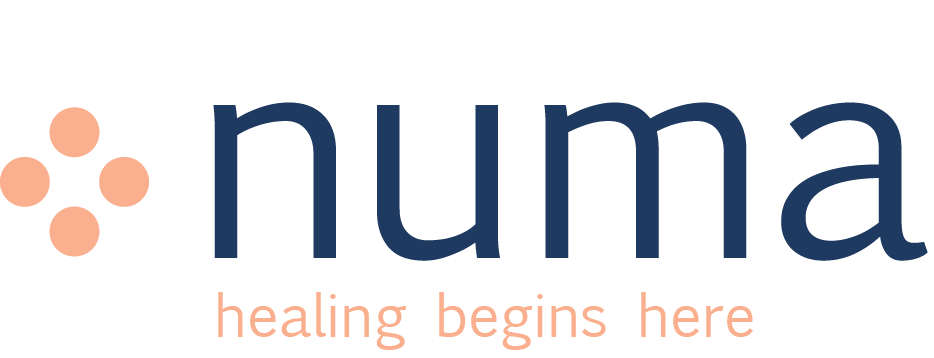The heart is one of the most central and important organs of the body. So, of course, alcohol and substance abuse affects the heart, too. Your heart health can influence the way your mind and body function. When these certain neurological and biochemical changes take place in a person’s body after prolonged alcohol and substance […]
Family systems theory views the family as an emotional unit and is used to understand human behavior and relationships within the family unit. Often utilized in clinical practice and family therapy, it helps solve problems and improve communication within the family. This article discusses family systems theory, its key concepts, applications, and examples.
NUMA Recovery Centers offers treatment programs that incorporate therapeutic modalities, such as family therapy. We help families identify and address dysfunctional patterns and foster a supportive environment for recovery. Contact NUMA Recovery Centers today to learn more about our treatment programs.
Quick Points
-
Family systems theory is a theoretical framework based on the idea that a patient can be better understood by studying their family history, dynamics, and emotional system.
-
This approach has 8 key concepts, which work together to identify patterns of behavior and understand how the emotional system affects individual or group functioning within the family unit.
-
Family systems theory is often used in family therapy and is effective in dealing with issues like substance addiction, mental health disorder, and family conflicts.
What Is Family Systems Theory: An Overview
Introduced by Dr. Murray Bowen in the 1960s, the Bowen family systems theory posits that families operate as a complex emotional unit with interdependent members. His theory emphasizes the importance of understanding families as a whole rather than focusing solely on the individual.
By analyzing family patterns and behaviors, therapists can better understand how issues like marital conflict, emotional distance, and sibling rivalry arise and persist. This holistic approach helps therapists develop more effective strategies to address and resolve these issues, which leads to healthier family dynamics.
8 Key Concepts of Family Systems Theory for Family Members
The family system theory has eight interlocking concepts and they are as follows:
-
Triangles — Highlights how relationships can form triangles, which affects dynamics among family members.
-
Differentiation of Self — Focuses on individuals' ability to separate their emotions from their relationships and make decisions based on principles rather than emotions.
-
Nuclear Family Emotional System — Helps members understand and recognize patterns of emotional reactivity within the nuclear family.
-
Family Projection Process — Refers to how parents project their own anxieties onto their children, which can influence their behavior and self-perception.
-
Multigenerational Transmission Process — Examines how emotional issues and patterns of behavior are passed down through generations.
-
Sibling Position — Birth order and sibling dynamics play a role in shaping personality and behavior within families.
-
Emotional Cutoff — Describes how some individuals manage unresolved emotional issues by physically or emotionally distancing themselves from family members.
-
Societal Emotional Process — Extends beyond individual families to examine how broader societal influences and emotional processes affect family dynamics.
Using Family Systems Theory in Family Therapy: Applications and Examples
Family systems therapy is used to address a range of clinical problems, including mental health disorders and substance use disorder, among others. Here are examples of applications and examples for each concept:
Identifying Emotional Patterns
Therapists analyze emotional dynamics within the family system. For example, a therapist might observe that a family member experiences anxiety during conflicts which spreads to others and disrupts communication.
Promoting Differentiation
Therapists help family members become more self-aware and less reactive. For instance, a parent learns to express their needs without becoming defensive, which improves overall family interactions.
Addressing Triangles
Therapists guide families to manage conflicts directly rather than triangulating. For example, a spouse communicates directly with their partner instead of venting to a sibling.
Understanding Multigenerational Patterns
Therapists explore how emotional patterns are passed across generations. For example, a client realizes their opioid use stems from their parents' coping mechanisms during stressful periods.
Exploring Sibling Position
Therapists discuss how birth order impacts personality and affect family dynamics. For instance, the oldest child often feels responsible, while the youngest seeks attention.
Breaking Emotional Cutoff
Emotional cutoff occurs when family members distance themselves to avoid conflict. Therapists encourage communication, especially in cases that involve family estrangement.
Applying Systems Thinking
Therapists view the family as an interconnected system. For example, when a family member stops enabling a sibling's alcohol misuse and heroin abuse, the entire family adjusts roles and expectations.
Enhancing Problem-Solving Skills
Therapists teach collaborative problem-solving techniques. For instance, families learn to create a shared schedule to manage household chores and reduce conflicts.
How Can NUMA Help?
NUMA Recovery Centers use family systems therapy to address family and emotional problems that stem from addiction and other concerns. We are committed to your emotional healing journey, whether you’re seeking individual or family therapy. Visit NUMA Recovery Centers today to learn how our therapeutic programs can support your family.
What is Aftercare? Aftercare programs are one of the most important parts of the recovery process. They include any type of care offered after the detox or residential treatment. Now that you’re sober, aftercare programs focus on how to keep it that way. They offer tools, strategies, resources, and support networks to make sure you […]
Opioid misuse has reshaped the landscape of public health in the United States, touching urban, suburban, and rural communities alike. In cities like Los Angeles—where access to prescription medications is widespread and stressors are high—opioid addiction has become an ongoing crisis that affects individuals, families, and the healthcare system at large. Many people still associate […]



